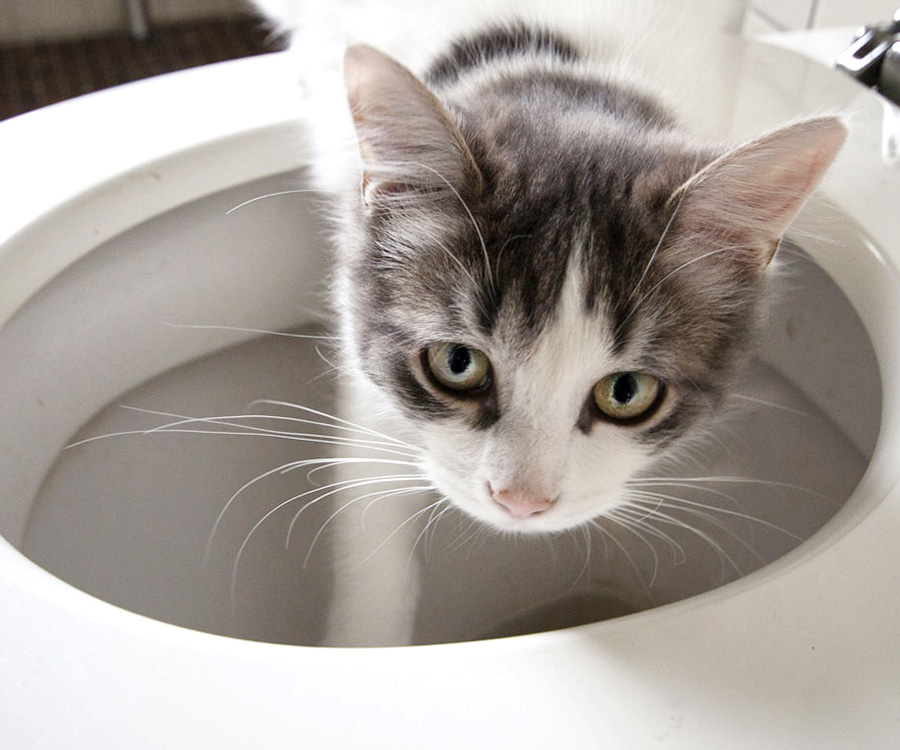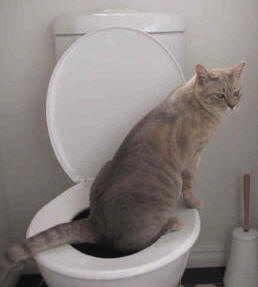Avoid Clogs and Damage: Never Flush Cat Poop Down Your Toilet - Expert Recommendations
Avoid Clogs and Damage: Never Flush Cat Poop Down Your Toilet - Expert Recommendations
Blog Article
The publisher is making a number of great observations related to Can You Flush Cat Poo or Litter Down the Toilet? as a whole in this content beneath.

Intro
As feline owners, it's essential to bear in mind exactly how we dispose of our feline buddies' waste. While it might appear convenient to flush feline poop down the toilet, this method can have destructive repercussions for both the environment and human health and wellness.
Ecological Impact
Flushing cat poop introduces unsafe pathogens and parasites right into the water supply, posing a substantial danger to aquatic communities. These pollutants can adversely affect aquatic life and concession water quality.
Health and wellness Risks
Along with environmental concerns, purging pet cat waste can additionally posture wellness dangers to people. Cat feces might have Toxoplasma gondii, a parasite that can create toxoplasmosis-- a possibly severe illness, specifically for expecting women and people with damaged immune systems.
Alternatives to Flushing
Fortunately, there are much safer and more accountable ways to dispose of cat poop. Consider the following options:
1. Scoop and Dispose in Trash
The most typical approach of throwing away cat poop is to scoop it into a biodegradable bag and throw it in the trash. Make certain to make use of a devoted trash scoop and take care of the waste quickly.
2. Use Biodegradable Litter
Opt for naturally degradable cat litter made from materials such as corn or wheat. These clutters are eco-friendly and can be securely thrown away in the trash.
3. Hide in the Yard
If you have a backyard, think about hiding pet cat waste in a designated area away from veggie yards and water sources. Make sure to dig deep adequate to prevent contamination of groundwater.
4. Mount a Pet Waste Disposal System
Invest in a family pet garbage disposal system specifically developed for feline waste. These systems utilize enzymes to break down the waste, lowering odor and ecological effect.
Conclusion
Accountable family pet ownership extends beyond providing food and shelter-- it likewise involves proper waste management. By refraining from flushing feline poop down the bathroom and selecting different disposal approaches, we can minimize our ecological impact and shield human health.
Why Can’t I Flush Cat Poop?
It Spreads a Parasite
Cats are frequently infected with a parasite called toxoplasma gondii. The parasite causes an infection called toxoplasmosis. It is usually harmless to cats. The parasite only uses cat poop as a host for its eggs. Otherwise, the cat’s immune system usually keeps the infection at low enough levels to maintain its own health. But it does not stop the develop of eggs. These eggs are tiny and surprisingly tough. They may survive for a year before they begin to grow. But that’s the problem.
Our wastewater system is not designed to deal with toxoplasmosis eggs. Instead, most eggs will flush from your toilet into sewers and wastewater management plants. After the sewage is treated for many other harmful things in it, it is typically released into local rivers, lakes, or oceans. Here, the toxoplasmosis eggs can find new hosts, including starfish, crabs, otters, and many other wildlife. For many, this is a significant risk to their health. Toxoplasmosis can also end up infecting water sources that are important for agriculture, which means our deer, pigs, and sheep can get infected too.
Is There Risk to Humans?
There can be a risk to human life from flushing cat poop down the toilet. If you do so, the parasites from your cat’s poop can end up in shellfish, game animals, or livestock. If this meat is then served raw or undercooked, the people who eat it can get sick.
In fact, according to the CDC, 40 million people in the United States are infected with toxoplasma gondii. They get it from exposure to infected seafood, or from some kind of cat poop contamination, like drinking from a stream that is contaminated or touching anything that has come into contact with cat poop. That includes just cleaning a cat litter box.
Most people who get infected with these parasites will not develop any symptoms. However, for pregnant women or for those with compromised immune systems, the parasite can cause severe health problems.
How to Handle Cat Poop
The best way to handle cat poop is actually to clean the box more often. The eggs that the parasite sheds will not become active until one to five days after the cat poops. That means that if you clean daily, you’re much less likely to come into direct contact with infectious eggs.
That said, always dispose of cat poop in the garbage and not down the toilet. Wash your hands before and after you clean the litter box, and bring the bag of poop right outside to your garbage bins.
https://trenchlesssolutionsusa.com/why-cant-i-flush-cat-poop/

I came across that blog entry on Can You Flush Cat Poop Down The Toilet? when doing a search on the internet. You should take a moment to share this blog posting if you appreciated it. I am grateful for your time. Visit again soon.
Call Today Report this page